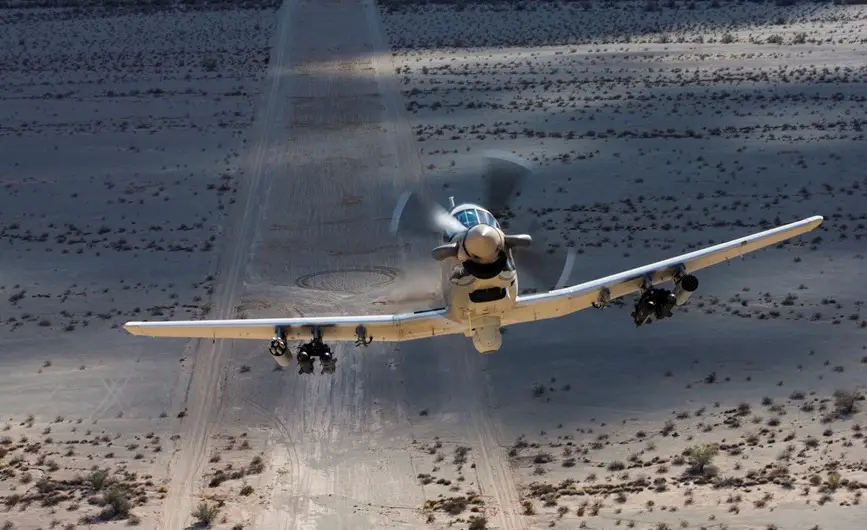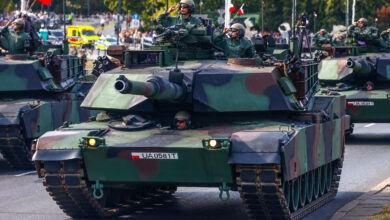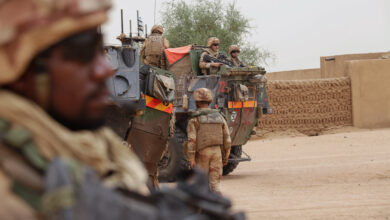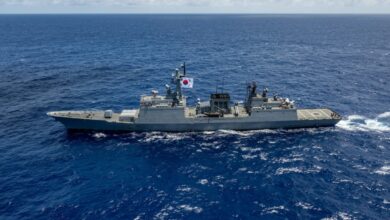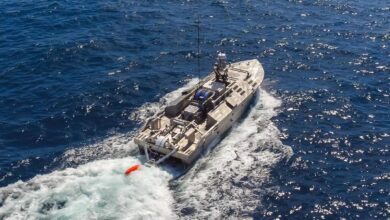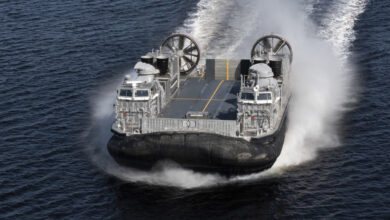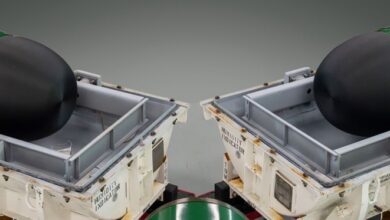The U.S. State Department approved an estimated $325.8 million sale of four AT-6C Wolverine light attack aircraft with supporting equipment to Tunisia, the Defense Security Cooperation Agency said.
“The proposed sale will improve Tunisia’s ability to meet current and future threats by increasing their capability and capacity to counter-terrorism and other violent extremist organization threats,” the Wednesday, February 26 release said. “The AT-6 platform will bolster their capability to respond to and engage threats in multiple areas across the country.”
The proposed sale includes gravity and guided munitions, including 468 Mark 81 250-lb bombs, 48 500-lb Mark 82 bombs, Paveway II laser guidance units, 3,290 Advanced Precision Kill Weapon System (APKWS) laser guidance units for 2.75-inch rockets, six .50 caliber machine guns, and six L-3 WESCAM MX 15D Multi-Spectral Targeting Systems.
It also includes two spare Pratt and Whitney PT6A-68D 1600 SHP engines, as well as bomb components, rocket motors, practice bombs, construction, training, technical and logistics support.
The primary contractor is Textron Aviation Defense.
The two-seat AT-6 Wolverine is the armed version of the Beechcraft T-6 Texan propellor-driven trainer aircraft, designed to deliver close air support, precision strike and reconnaissance capabilities in low-intensity or permissive environments. In October 2019, the State Department approved the $234 million sale of 12 T-6 Texans to Tunisia, a sale that DSCA said at the time would help support Tunisia’s “counter-terrorism and border security missions.”
Interest in light attack aircraft, particularly propellor-driven models, has significantly increased in recent years. The AT-6 Wolverine featured alongside other aircraft, notably the rival Embraer/Sierra Nevada A-29 Super Tucano in U.S. Air Force light attack experiments, and small numbers of both aircraft were purchased for further testing.
However, that light attack capability has now moved from the U.S. Air Force to Special Operations Command, with SOCOM earlier this month issuing a solicitation for “deployable and sustainable manned aircraft systems” to provide for its “armed overwatch” requirement. A total of 75 aircraft could be purchased.
Tunisia’s government has heavily relied on its military to secure its eastern border with Libya, which has seen intermittent civil war since a popular uprising backed by NATO overthrew long-time dictator Muammar Gaddafi in 2011.
Al-Qaeda and Islamic State affiliated groups have sought refuge in the country’s western mountains near the border with Algeria, and the Tunisian military conducted operations against both groups in 2019.
The U.S. and Tunisia have quietly increased military cooperation in recent years.
As part of a wider visit to Africa, René Clarke Cooper, the U.S. State Department’s assistant secretary for political-military affairs, will stop in Tunisia in early March, where he will meet with senior government officials before heading to the International Aerospace and Defense Exhibition in Djerba to meet with aerospace and defense industry executives.
Cooper will “join other senior U.S. government officials to advocate for U.S. companies offering the latest aerospace and defense technologies,” the State Department said on Wednesday.

